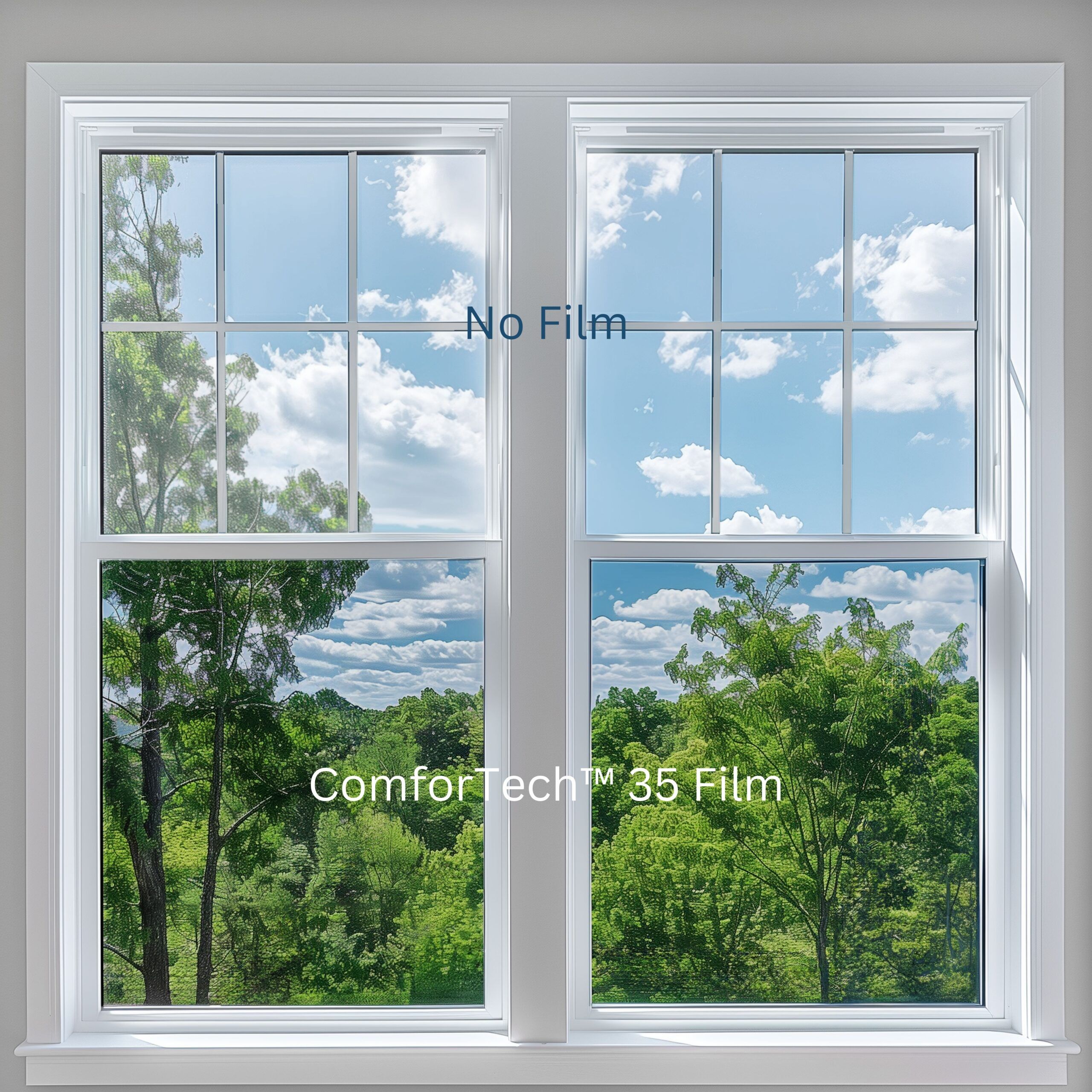Residential Window Tint: Block Harmful Rays Without Compromising Natural Light
Residential Window Tint: Block Harmful Rays Without Compromising Natural Light
Blog Article
How Residential Home Window Tinting Improves Your Home's Power Efficiency
Residential home window tinting presents an engaging option for homeowners seeking to enhance power efficiency within their living rooms. By applying specialized films to windows, it efficiently minimizes heat transfer, consequently stabilizing interior temperatures and minimizing the requirement for excessive heating or air conditioning. This not only stops energy usage yet additionally supplies an extra comfortable atmosphere by mitigating glare. Understanding the nuances of exactly how tinting works and selecting the proper kind for your home can be pivotal. Strangely enough, what aspects should one consider before making this financial investment?
Comprehending Home Window Tinting
Comprehending window tinting is necessary for house owners seeking to enhance both comfort and energy effectiveness in their living areas. Residential Window Tint. Home window tinting entails the application of a slim movie to the interior or outside surface of glass home windows. This movie can significantly modulate the amount of sunlight and warmth that gets in a home, hence affecting interior environment conditions
There are numerous kinds of window tinting movies offered, each with unique homes. The effectiveness of home window tinting is typically measured by its Visible Light Transmission (VLT) portion, which indicates just how much light can pass with the movie.
Benefits of Energy Performance
Home window tinting not just enhances looks however also plays a substantial role in boosting energy performance within household areas. By lowering warm transfer via windows, tinted movies create an extra stable interior environment, which can result in substantial reductions in power intake for heating and air conditioning. This energy effectiveness converts into reduced energy costs, supplying homeowners with considerable lasting savings.

Furthermore, window tinting enhances the comfort of living rooms. By reducing glare and obstructing dangerous UV rays, tinted windows develop a more pleasant setting, which can cause improved health for occupants. The security against UV rays additionally assists protect furniture and floor covering from fading, contributing to the longevity of family items.
Just How Tinting Functions
Tinting movies operate via a combination of sophisticated materials and modern technologies created to control the quantity of solar power going into a home. Primarily made up of polyester, these films usually integrate metal or ceramic bits that reflect and take in warmth. This double ability enables them to dramatically minimize the infiltration of ultraviolet (UV) rays and infrared radiation while permitting visible light to travel through.
The effectiveness of home window tinting is gauged by its solar heat gain coefficient (SHGC), which shows how much solar power is transferred through the useful link window. Reduced SHGC worths are more effective as they represent greater warm denial. Additionally, home window colors can include a variety of shades, permitting property owners to customize their aesthetic preferences while boosting power efficiency.
Additionally, these movies act as a barrier, stopping warmth loss throughout cooler months by reflecting indoor warmth back into the living area. This thermal insulation impact matches the cooling advantages gained during warmer months, adding to a balanced indoor climate year-round. By taking care of solar power properly, domestic window tinting not only enhances comfort but also plays an important function in minimizing energy usage and reducing utility bills.
Choosing the Right Tint

There are numerous types of window films offered, consisting of dyed, metalized, and ceramic. Ceramic films supply superb heat control without compromising visibility and are extremely long lasting, making them a preferred selection.
Visible light transmission (VLT) is another important variable, as it shows the quantity of natural light that can pass with the tinted glass. House owners should choose a color with a VLT that enhances their lights choices while still providing sufficient glare reduction.
Additionally, evaluating the solar warm gain coefficient (SHGC) can aid establish just how well a color can obstruct warm from sunlight. A lower SHGC suggests much better warm her latest blog control, eventually improving energy efficiency.
Installment and Maintenance Tips
Proper installation and upkeep are crucial elements in optimizing the benefits of domestic home window tinting. To accomplish optimal outcomes, it is suggested to employ a qualified specialist for installation. This ensures that the color is applied appropriately, preventing air bubbles, wrinkles, or imbalance that could endanger performance. Specialists likewise make use of specialized methods and tools, which can boost the longevity and efficiency of the color.
Adhering to installment, maintenance is crucial to prolong the life of the window film. It is suggested to wait at the very least 30 days prior to cleaning up the colored home windows to permit the adhesive to cure fully.
Attending to these concerns promptly can prevent more damages and preserve energy efficiency. By sticking to these installment and upkeep ideas, house owners can ensure their home window tinting proceeds to provide considerable energy financial savings and comfort for years to come.
Conclusion
In conclusion, domestic home window tinting serves as a reliable solution for improving power effectiveness within homes. By decreasing warmth transfer and blocking unsafe UV rays, window movies add to lower energy intake and improved interior convenience.
Window tinting includes the application of a thin movie to the inside or outside surface of glass home windows. By reducing heat transfer with home windows, tinted films produce an extra stable indoor climate, which can lead to considerable decreases in power consumption for heating and cooling.The efficiency of home window tinting pop over here is measured by its solar heat gain coefficient (SHGC), which suggests just how much solar power is transmitted with the home window. By taking care of solar power effectively, domestic window tinting not only improves convenience yet additionally plays a vital role in decreasing energy consumption and reducing utility expenses.
By minimizing warm transfer and obstructing harmful UV rays, window movies add to reduce energy intake and boosted indoor convenience.
Report this page